Israel-Hamas War - What happened on day 77?
IDF takes over Gaza City's south, pushes Hamas out of Shejaia • IDF: Israel killed four senior Hamas brigade commanders, three left
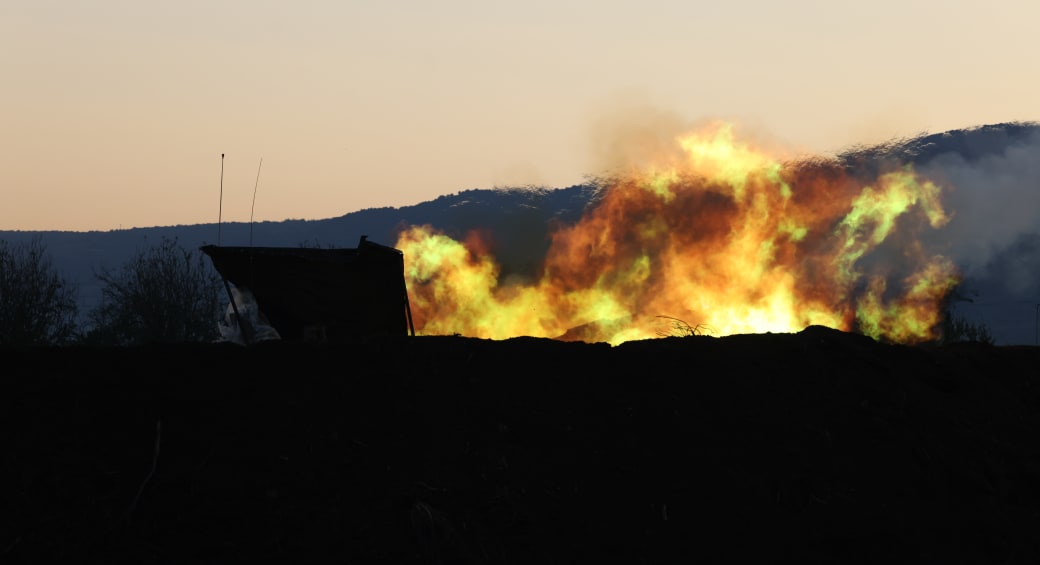

IDF destroys massive, multi-level tunnel network beneath Gaza City
The various floors of the underground structure were used for storage, hideouts, command and control, and to facilitate movement of terrorists between different locations in the area.
The IDF destroyed a Hamas tunnel network in southern Gaza City’s Issa district during operational activity in the area over the last few weeks, the IDF said on Friday.
The demolished tunnel network served as a subterranean post for the Gaza-based Islamist terror organization, the IDF added. Other buildings being used as Hamas headquarters were also reportedly destroyed.
The news comes a day after the IDF announced the troops from the Yahalom special operations unit of the IDF’s Combat Engineering Corps, along with the 401st Brigade combat team, destroyed an extensive tunnel network used by senior Hamas leadership beneath Gaza City's Shejaia neighborhood.
As part of the Israeli forces hitting Hamas in the south of Gaza City, the Yiftah Battalion, along with combat engineering forces, targeted the Hamas headquarters in the area.
During their raid on the infrastructure, the IDF troops observed a terrorist squad attempting to launch an attack on the Israeli soldiers. The troops subsequently engaged and successfully eliminated the terrorists in close-quarters combat, the IDF continued.
Throughout the operational activity, the IDF also reported that many other terrorists, buildings used for terror activities, and weapons were destroyed.
Concurrently, troops of the IDF Paratroopers Brigade operating in the Issa area uncovered a number of shafts descending into the since-razed underground tunnel network.
Examination reveals the massive extent of the subterranean tunnel network
Additional troops from Yahalom and the Oketz K-9 Unit assessed the tunnel complex beneath what the IDF has dubbed the "Issa" post, revealing a multi-level subterranean structure.
The IDF noted that the various floors of the structure were used for storage, hideouts, command and control, and to facilitate the movement of terrorists between different locations in that area of the Gaza City.
Subsequently, after employing a variety of technological capabilities with the aid of 99th Division’s combat engineering forces to further investigate the tunnel system, the troops destroyed it, the IDF said.
The tunnel network, which was reportedly hundreds of meters long, was documented with footage obtained by the Marom Brigade's Oketz K-9 Unit's dog cameras.
Dogs are regularly used by the IDF to act as the head of an advancing force. Earlier this week, Golani forces sent a camera-equipped dog ahead of them into a suspicious area. The dog was subsequently shot by Hamas terrorists.
The footage, which has been released by the IDF, recorded the terror infrastructure located in the tunnels.
The facilities were equipped with concrete bunkers, water, and electricity.
The K-9 units and their dogs have been active since the start of the war gathering intelligence that allows soldiers to enter Gaza’s various tunnel networks.
Go to the full article >>War takes an economic toll on Israeli businesses and employees
With many Israeli businesses working reduced hours or closing during the war, employees losing their jobs or placed on unpaid leave, many have turned to unemployment benefits to help them get by.
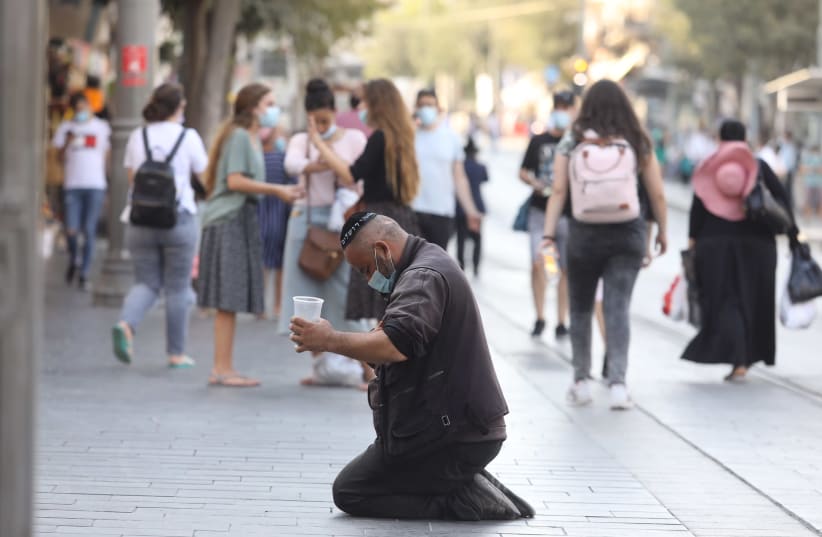
The Israel-Hamas war has hit Israeli businesses hard. Safety concerns, reduced consumer demand, and staff shortages caused by a lack of foreign laborers and by employees and owners being called up for reserve military duties have all affected businesses and have left many struggling to maintain operations, with some closing and others working reduced hours.
Since October 7, when the war began, 187,184 Israelis have applied for unemployment benefits, according to the latest figures released by Israel’s National Insurance Institute this week. Of those people, 133,970, or 71.5%, did so after being placed on involuntary unpaid leave by their employers, the data showed.
Some 59% of those who have applied for unemployment benefits since the start of the war are aged 20 to 40, 40% are aged 41 to 67, and the remainder are aged 67 or above.
The institute pointed out that in normal times, it receives about 20,000 applications per month for unemployment benefits, but since Oct. 7, it has received well over 80,000 applications per month.
Christopher Haj, a 24-year-old student who worked as a bartender at the Herbert Samuel Hotel in Jerusalem, told The Media Line he signed up for unemployment benefits after the war significantly affected his work.
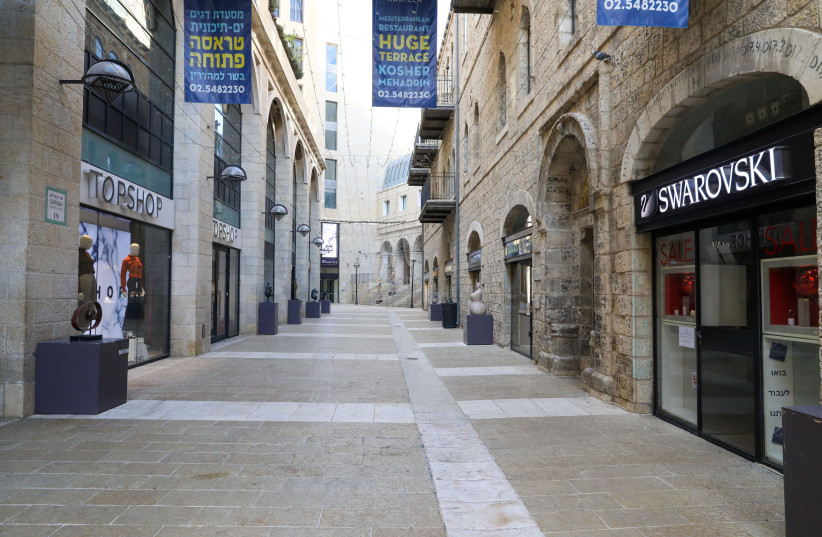
Like many other hotels, when the war began, the Herbert Samuel shifted to housing Israelis evacuated from their homes in the south, most of whom could not afford drinks at the hotel bar. The hotel managers reduced drink prices but found operating the bar unprofitable and eventually decided to close it.
“When I went to Human Resources, they gave me the option whether to work as a waiter [in the hotel restaurant] or go on leave,” Haj told The Media Line. “I told them I would rather sign up for unemployment benefits and get paid by the National Insurance Institute.”
New policies for receiving unemployment benefits
Israel’s National Insurance Institute pays unemployment benefits to salaried employees who have resigned, been laid off, or been fired from their jobs. Self-employed people are not eligible. The amount paid is based on the former employee's average salary over the preceding months.
Since the start of the war, the institute has relaxed some requirements, allowing people placed on unpaid leave to register for unemployment benefits after 14 days rather than the previously required 30, and also allowing people to register for benefits after having worked six months out of the preceding 18, rather than the previously required 12 out of 18.
Sara Hussein, a 23-year-old law student now working as a receptionist at Jerusalem's Hadassah Hospital, told The Media Line that before the war she had been working at a store in a Jerusalem mall. When the war broke out, the store reduced its hours significantly and left her with no option but to register for unemployment benefits.
“They told me that I needed to sign up for unemployment benefits because the places were beginning to close early, and they weren’t able to give me any shifts,” she said.
At the peak of the COVID pandemic in 2020, more than 1 million Israelis, 24% of the workforce, were unemployed.
Haj said that during the COVID pandemic, he received far more unemployment benefits than he has been receiving now during the war, as before the pandemic he worked many more hours than he did before the war.
“I can’t go out most of the time like I used to,” Haj said. “I tend to stay in more, and I don’t want to spend money on things I know I don’t need. The money I receive now is a lot less than what I received during the pandemic.”
He also said he was feeling more isolated in his financial situation now, as during the pandemic being out of work was much more common.
Hussein too said she had received more in unemployment benefits during the pandemic than during the current war.
She said that before COVID, she worked at a job that paid NIS 5,000 to 7,000 per month, and during the pandemic, she received NIS 2,000 per month in unemployment benefits. However, before the war, she was working fewer hours and thus was entitled to only 600 shekels per month in unemployment benefits. She said she struggled to pay her expenses especially her tuition fees out of her unemployment benefits.
"That’s when I knew I needed to find a new job ASAP,” she said, adding that this led her to take on her current job at Hadassah Hospital.
Discussions are taking place over ways to compensate other groups affected by the war, including employers and the self-employed, wounded, evacuees, anxiety sufferers, reserve service members, and others.
Lana Ikelan is a recent graduate of the Hebrew University of Jerusalem and an intern in The Media Line’s Press and Policy Student Program.
Go to the full article >>Israeli expert: with Hezbollah, political solution not in sight, full-scale war possible
Col. (res.) Miri Eisin: "Hezbollah has far greater military capabilities than Hamas does, and while Israel is prepared and can deal with the threat, the challenge is 'very big.'"
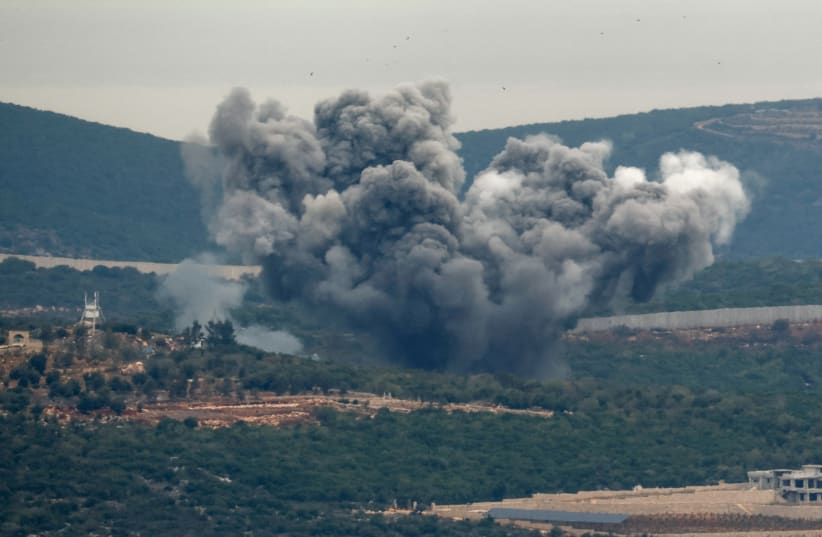
Col. (res.) Miri Eisin is the managing director of the International Institute for Counter-Terrorism at Reichman University in central Israel. An expert in geopolitics and regional security, she served in Israeli intelligence for many years and worked for the Prime Minister's Office as an international media adviser during the Second Lebanon War. Eisin spoke to The Media Line about the risk of an all-out war between Israel and Hezbollah.
TML: How do you read what has been happening between Israel and Hezbollah since the war started?
Col. (res.) Miri Eisin: Hezbollah is trying to act as if they are definitely helping out Hamas in the Gaza Strip, and at the same time, Hezbollah is very wary of the Israeli focus being against Hezbollah. It's trying to hold both sides of the sword in its own way, semi-successfully.
Hezbollah has managed to create a de facto buffer zone on the Israeli side because of its actions against Israeli communities along the border.
Israel preemptively evacuated over two dozen communities. Having said that, Hezbollah is continuously firing into Israel, has been attacked consistently by Israel, and is having a lot of casualties in Lebanon, as they continue to use their diverse arsenal of weapons.
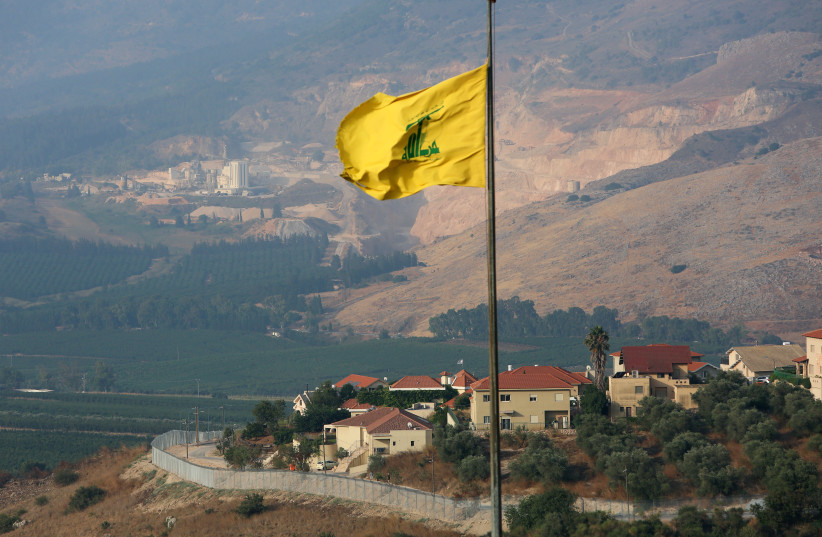
TML: Do you believe that it is possible to get to a diplomatic agreement in which Hezbollah would retreat and go north to the Litani River?
Col. (res.) Miri Eisin: I do not. I understand the idea, but I don’t think that there is any force that is going to the military force of Hezbollah to move. I don’t believe in Hezbollah, so even if they say that they’re willing to do so, and I don't think that they will, I don’t believe it. Who will follow and implement that? And because of that, I think that the diplomatic idea is lovely, but it’s totally impractical.
TML: If, one way or another, Hezbollah does go north to the Litani River, is the Israeli northern community safe because of that?
Col. (res.) Miri Eisin: Hezbollah forces, specifically the Radwan Force, are much stronger and have many more weapons, capabilities, and training than what we saw in the attack on Israel by Hamas on Oct. 7.
If the Radwan Force goes north from the Litani River, that is a significant event. If there is some kind of diplomatic pressure that would make Iran tell Hezbollah to go to the north of the river, that is significant.
I do think that Israeli communities all along the border would feel much safer. It’s not the only thing that would have to be done. But that’s the main direct threatening force on the border communities.
TML: What is the possibility of an all-out war erupting? And what are the main considerations taken by both Israel and Hezbollah before starting a war?
Col. (res.) Miri Eisin: Every single day we need to be aware that, both because of miscalculation or also because of the targeting itself that Hezbollah is doing into the state of Israel, a full-scale war could break out.
To be clear, right now, we are at war with Hezbollah. It is a war of attrition. It is localized in most of the buffer zone. For it to be full-scale, with Hezbollah using the immense amount of weaponry it has, it could be because it has launched a successful attack on Israel. We have been exceedingly good at preventing all of these incoming attacks, with very few casualties inside Israel until now.
It could be a miscalculation when Israel responds against all of these Hezbollah attacks that have been taking place against Israel. If Israel responds inadvertently and there is a large number of casualties on the Lebanese side, Hezbollah could decide to do a full-scale attack.
Add to that that Hezbollah is an Iranian proxy. If Iran changes its tune, if it thinks that it’s not enough to use Houthis in Yemen, or the different Iraqi Shia proxy groups, or other Syrian proxy groups, and wants to expand its powers, that can also bring about full-scale war.
I don’t see Israel doing right now a preemptive full-scale attack against all of Hezbollah's capabilities. But to be clear, we are attacking them daily, both along the border and deeper inside.
TML: Can you speak about Hezbollah’s military capabilities?
Col. (res.) Miri Eisin: Everything that we saw from Hamas, pretty much times 10. Everything that we saw from Hamas, with more training, and with more very high-tech weapons.
We knew what Hamas had. Most of our problem was that we did not assess that they would use it.
When we are talking about Hezbollah and their Radwan Force, [it has] thousands of trained operators who have been trained physically in Iran, know how to use all their weapons, [and] own motorcycles. They have been trained to operate above ground, below ground. [They have] capabilities of attacking communities.
The weapons themselves: anti-tank guided missiles, suicide drones, a wide variety of UAVs [unmanned aerial vehicles] with gathering capabilities, and a very big variety of rockets and missiles, including exact guided missiles.
All of these are capabilities that we may have seen singularly from Hamas, but when it comes to Hezbollah, they have all of these weapons in mass. If Hamas has 15,000 rockets, Hezbollah has 150,000 rockets.
TML: How prepared is Israel to deal with that threat?
Col. (res.) Miri Eisin: When you take these numbers in, it is a very big challenge. Israel can withstand it and attack it, but it doesn’t mean that you do it without any casualties within Israel and without any successes to Hezbollah.
It is a very big challenge that we’ve been aware of for over a decade in its presence.
Hezbollah’s capabilities are what Israel was preparing itself for. Part of the reason that we missed Hamas is that Israel has been preparing to take out Hezbollah’s capabilities. For many years, Israel has preemptively attacked different Hezbollah targets, mainly in Syria and slightly inside Lebanon.
To do an all-out preemptive strike, Israel has the capabilities. It means attacking dozens if not hundreds of targets simultaneously from the air and the ground—all the Hezbollah weaponry cache of weapons.
Where are all of these weaponry and operatives? Inside towns and villages and cities, both in southern Lebanon and the city of Beirut, [and] in the Beqaa Valley [in eastern Lebanon].
Everything that we are seeing in that sense, all the challenges of civilian populations where Hezbollah lives within that civilian population, would exist in any kind of an attack against Hezbollah inside Lebanon.
We already see it on a small scale now, as we are doing targeted attacks against different Hezbollah terrorists in different towns and villages. We have mainly been very targeted, only killing Hezbollah operatives. But even in these last two and a half months, we have killed a civilian here, a civilian there. It would be on a much larger scale.
TML: What is the position of the rest of the Lebanese leadership?
Col. (res.) Miri Eisin: Lebanon is a complex country. It’s made up of a variety of minorities. Lebanon has not had a census and demographic count of how many people there are and the different minorities since 1932.
Why am I giving that historical fact? Because there’s no question that the Arabic-speaking Shiites of Lebanon, which Hezbollah is one of their political parties—politics done by a terror organization—are probably over 50% of the population. So, when we talk about all the other Lebanese, they are most likely together around 50% of the population. That includes Sunni Arabic-speaking Muslims, Druze, and Alawites, and also includes a large Christian population with a variety of denominations.
I don’t have expectations of Lebanon the country. All the diplomacy is done with Lebanon the country, and that’s why it’s such a big question. What do you do when a hybrid terror organization is both part of the population, participates in the political process, and has the eighth-largest cache of weapons in the world?
Lebanon is a country of almost 10 million people that hosts an enormous number of refugees from the Syrian war and Palestinian refugees from 1948.
TML: How would a war affect Lebanon as a country, specifically given that the country is already economically collapsed?
Col. (res.) Miri Eisin: The country itself used to have a very sustainable economy. That economy fell apart over the last four to five years and took a dive over the last two years, not connected to Israel, to the war, or the Palestinian issue. This is about the domestic Lebanese running of government. With corruption, and very big challenges within the country itself, Lebanon cannot sustain a war.
On the Lebanese side, mainly Christian communities on the Lebanese side of the border have evacuated or displaced people.
In the 2006 war, Israel chose to target, very much so, a lot of the infrastructure of Lebanon. We hold that country responsible for what grows within it. Having said that, we may do that again. But in this country, Lebanon the government does not know how to contain Hezbollah the terror organization in itself.
There is no easy resolution for [the fact] that it will be hurt, and their economy will be hurt even worse. I would even say it’s hurting now because of the war here as a side effect. But having said all of that, if the Lebanese do not take care of Hezbollah, I don’t think that the international community will take care of it. It means that Israel will, and [if] Israel does that, that is only through the use of our military capability againstHezbollah's terror capability, which, as I’ve said, is throughout Lebanon, in towns, villages, and cities. That’s where we will be attacked [from].
Hezbollah is a hybrid terror organization. For those of you who see Hezbollah as being something that gives back to the Lebanese Shiite community, a terror organization that also does charity, a terror organization that is into education … [it] is first and foremost a terrorist organization. Don’t forget that.
Go to the full article >>IDF spokesman: IDF near full operation grip of northern Gaza
IDF spokesman Daniel Hagari said on Friday evening that Israeli forces have almost reached a full operational grip of northern Gaza.
He referred to the tunnel that the IDF destroyed in the south of Gaza City, which is hundreds of meters long and included command and communication rooms, which was destroyed, according to him.
The IDF used 13 tons of explosives and destroyed 30 shafts. He stressed the time it took to map the shafts, insert explosives, and take away Hamas's ability to conduct underground warfare.
He also stated that "international organizations should implement decisions that would allow humanitarian access to the hostages."
IAF attacks Hezbollah military site in Lebanon
An IAF fighter jet attacked a Hezbollah military site in Lebanon.
This is following the rocket launches from Hezbollah towards the Manara area in Israel, several launches.
In addition, several mortar launches from Lebanon towards the Metula were detected. IDF forces attacked the sources of the rocket fire.
Gallant: 'Yahya Sinwar now hears the IDF tractors above him'
Defense Minister Yoav Gallant held a situation assessment with senior members of the war cabinet on Friday.
At the end of the discussion, Gallant said "Yahya Sinwar now hears the IDF tractors above him, the Air Force bombs, and the IDF's action. He will meet the barrels of our guns soon."
Hezbollah says 121 of its terrorists killed since recent war campaign against Israel
The Hezbollah terrorist organization stated on Friday that 121 of its operatives were killed by the IDF since the beginning of their war campaign against Israel since October.
This is a developing story.
IDF fighter jet intercepted last week unmanned aircraft over Lebanon en route to Israel - spokesman
An IDF fighter jet intercepted last week an unmanned aircraft in Lebanese territory, which was on its way to Israel, a spokesman said on Friday.
The vessel did not cross into Israeli territory.
Benjamin Netanyahu to 'Post': Setting the record straight
Israel enables aid to Gazan civilians. Hamas blocks it.
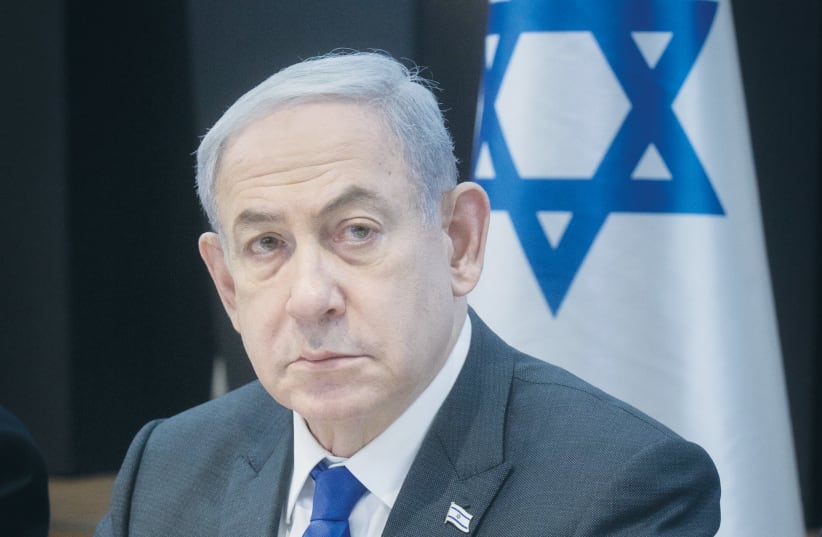
On October 7, Israel was brutally attacked by Hamas terrorists. They murdered over 1,200 people, wounded hundreds, and kidnapped over 200 hostages. In the most lethal attack on Jews since the Holocaust, they raped and decapitated women, killed children in front of their parents, burned babies and mutilated bodies.
After the attack, Hamas officials vowed that they would repeat this savagery “again and again and again.” In the face of such an attack and such a threat, eliminating Hamas is a necessary and proportionate response.
Israel responded to the October 7 atrocities by waging a just war of self-defense.
We set clear goals: Destroy Hamas, release our hostages, and ensure that Gaza never again poses a threat to Israel. We are committed to continuing the war until these goals are achieved. Once Hamas is destroyed, Gaza will have to be demilitarized and deradicalized. Those are the pillars for future peace.
Israel is pursuing its military goals in full compliance with international law.
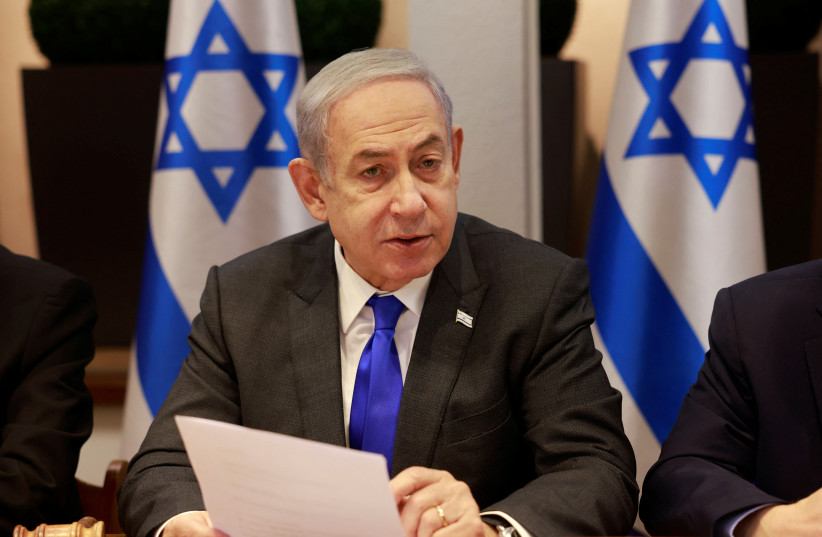
Hamas has been doing upmost to put Palestinian civilians in harm's way
Israel has been targeting Hamas terrorists, not Palestinian civilians. While we have been doing our utmost to keep Palestinian civilians out of harm’s way, Hamas has been doing its utmost to keep them in harm’s way. The Israeli Defense Forces (IDF) issued warnings to Palestinian civilians, asking them to evacuate intended combat zones and establish humanitarian corridors for their safe passage; Hamas, on the other hand, has been trying to prevent Palestinian civilians from leaving at gunpoint. We enable food, water, and medicine to enter Gaza for the civilian population; Hamas often diverts and steals these supplies for its use.
Israel did not start this war, but Israel will win it. The sooner we do so the better for Israelis, Palestinians, and for anyone seeking a peaceful Middle East.
Benjamin Netanyahu is the Prime Minister of Israel.
Go to the full article >>Putin, Abbas discuss Gaza conflict in phone call

Russian President Vladimir Putin held a telephone call with Palestinian President Mahmoud Abbas on Friday to discuss ways to de-escalate the conflict in Gaza as well as humanitarian relief efforts, the Kremlin said.
It said the two men agreed that Abbas would visit Russia at a date to be agreed.
Go to the full article >>Israel-Hamas War: What you need to know
- Hamas launched a massive attack on October 7, with thousands of terrorists infiltrating from the Gaza border and taking some 240 hostages into Gaza
- Over 1,200 Israelis and foreign nationals were murdered, including over 350 in the Re'im music festival and hundreds of Israeli civilians across Gaza border communities